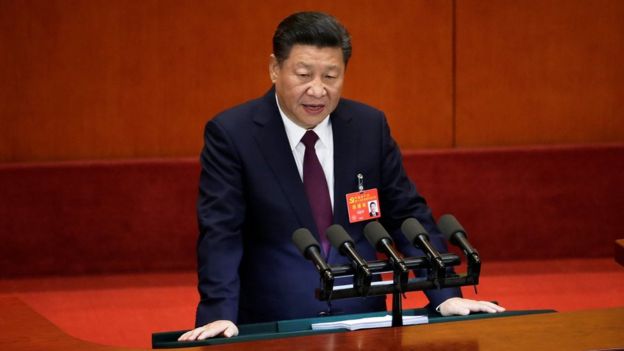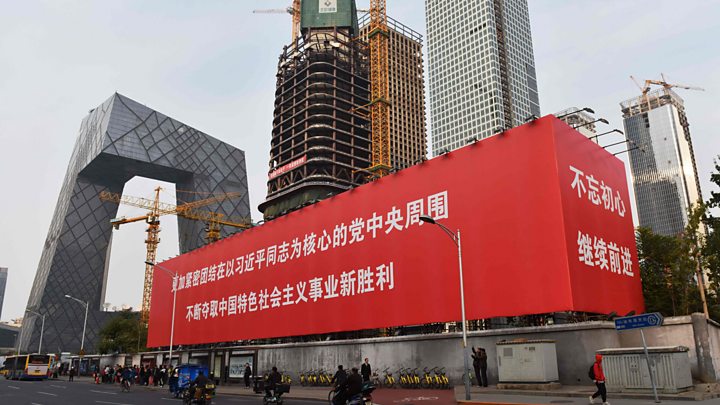China's biggest political event, the Communist Party congress, has begun in Beijing under tight security.
Party leader and Chinese president Xi Jinping is addressing more than 2,000 delegates in the capital.
The closed-door summit, which takes place once every five years, determines who rules China and the country's direction for the next term.
Mr Xi, who became the leader in 2012, has been consolidating power and is expected to remain as party chief.
- How China's Communist Party picks leaders
- The rising stars of China's Communist Party
- The human cost of China's economic reforms
The congress, which also decides on a roadmap for China for the next five years, is expected to finish next week.
Shortly after the congress ends, the party is expected to unveil the new members of China's top decision-making body, the Politburo Standing Committee, who will steer the country.
 REUTERS
REUTERS
In his speech, Mr Xi listed China's recent achievements, saying that "socialism with Chinese characteristics in this new era" meant China had "become a great power in the world", and added that the country should not copy foreign political systems.
He also:
- Briefly described a two-stage plan for China's "socialist modernisation", citing 2020 and 2035 as target deadlines
- Warned against separatism - in an apparent reference to movements in Xinjiang, Tibet and Hong Kong - and reiterated the government's principle that Taiwan is part of China
- Said China "would not close its doors to the world" and promised further economic reform, including lowering barriers for foreign investors
Mr Xi also spoke about his wide-reaching corruption crackdown within the Party that has punished more than a million officials, report BBC correspondents in Beijing.
Beijing is decked out in welcome banners and festive displays for the congress.
However, the capital is also on high alert. Long lines were seen earlier this week at railway stations due to additional checks at transport hubs.
The congress has also affected businesses, with some restaurants, gyms, nightclubs and karaoke bars reportedly shutting down due to tightened security rules, and accommodation-booking websites like Airbnb cancelling bookings in central Beijing.

An austerity drive, instituted by Mr Xi, has meant a more pared down congress, with Chinese reports this week of delegates' hotels cutting back on frills such as decorations, free fruit in rooms and lavish meals.
Many observers believe Mr Xi will further cement his position within the Party during the congress.
State media have said the Party is expected to rewrite its constitution to include Mr Xi's "work report" or political thoughts, which would elevate him to the status of previous Party giants Mao Zedong and Deng Xiaoping.
- The BBC's profile of Xi Jinping
- The Thoughts of Chairman Xi
- How Chinese authorities censor your thoughts
Since becoming president, Mr Xi has tightened control within the Party and also in Chinese society, with increasing censorship and arrests of lawyers and activists.
Under Mr Xi, China's modernisation and reform has also accelerated, as has its assertiveness on the world stage.
He continues to enjoy widespread support among ordinary citizens in China.
BBC News

No comments:
Post a Comment